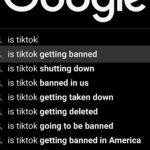Barring any further action from Congress, 2019 marks the last year for the full 30% federal tax credit on home solar panels. The tax credit will drop to 26% in 2020 and disappear altogether for residential properties in 2022.
With that in mind, CivicScience asked more than 1,800 U.S. adults which renewable energy sources they were most interested in. Excluding those who chose “None / No opinion”, nearly half said they’re most intrigued by solar power. At 20%, nuclear power came in a distant second.
Despite the considerable tax credit for residential solar panels, homeowners were actually 16% less likely than non-homeowners to choose solar power. Homeowners tended to choose geothermal and nuclear power more often, too.
Demographics
Interestingly, the results didn’t change very much when broken down by age. Millennials were the age group most likely to choose nuclear power, and Gen X was most likely to choose solar power — but each only slightly. One big difference among age groups? Baby Boomers were nearly twice as likely to choose wind power as members of any other generation.
When it came to gender, the differences were more marked.
Women were 63% more likely than men to choose biofuels, and far less likely to choose hydroelectric, geothermal, or nuclear power.
Income did not play a large role, though people living in households that earn $100,000 per year or more were 57% more likely to choose nuclear power.
Politics as Usual
As with many topics, renewable energy has become tangled up in American politics. It’s no surprise, then, that many of the answer choices appeared to be politically charged — with nuclear energy leading the way in that regard.
Conservatives also tended to like hydroelectric power, a tried-and-true power source in America since 1882. Liberals, meanwhile, favored power generated by the wind and the sun.
Perhaps the media that one consumes tinges their perception of renewable energy sources. For instance, NPR listeners were more likely to choose solar power and less likely to choose nuclear energy than non-listeners.
On the other hand, Fox News watchers were less than half as likely to choose solar power as watchers of any other major news network, and three times as likely to choose nuclear power.
And this one’s just for fun: It seems that favorability toward Anne Hathaway (The Devil Wears Prada, Les Misérables) correlates strongly to interest in solar and wind power. There’s also a strong inverse relationship between liking Hathaway and liking nuclear power.
Overall, a plurality of U.S. adults see solar power as the most viable renewable energy option. Notably, nuclear power supporters skewed male, conservative, and wealthier. Other renewable energy sources were more spread out among various demographics.








